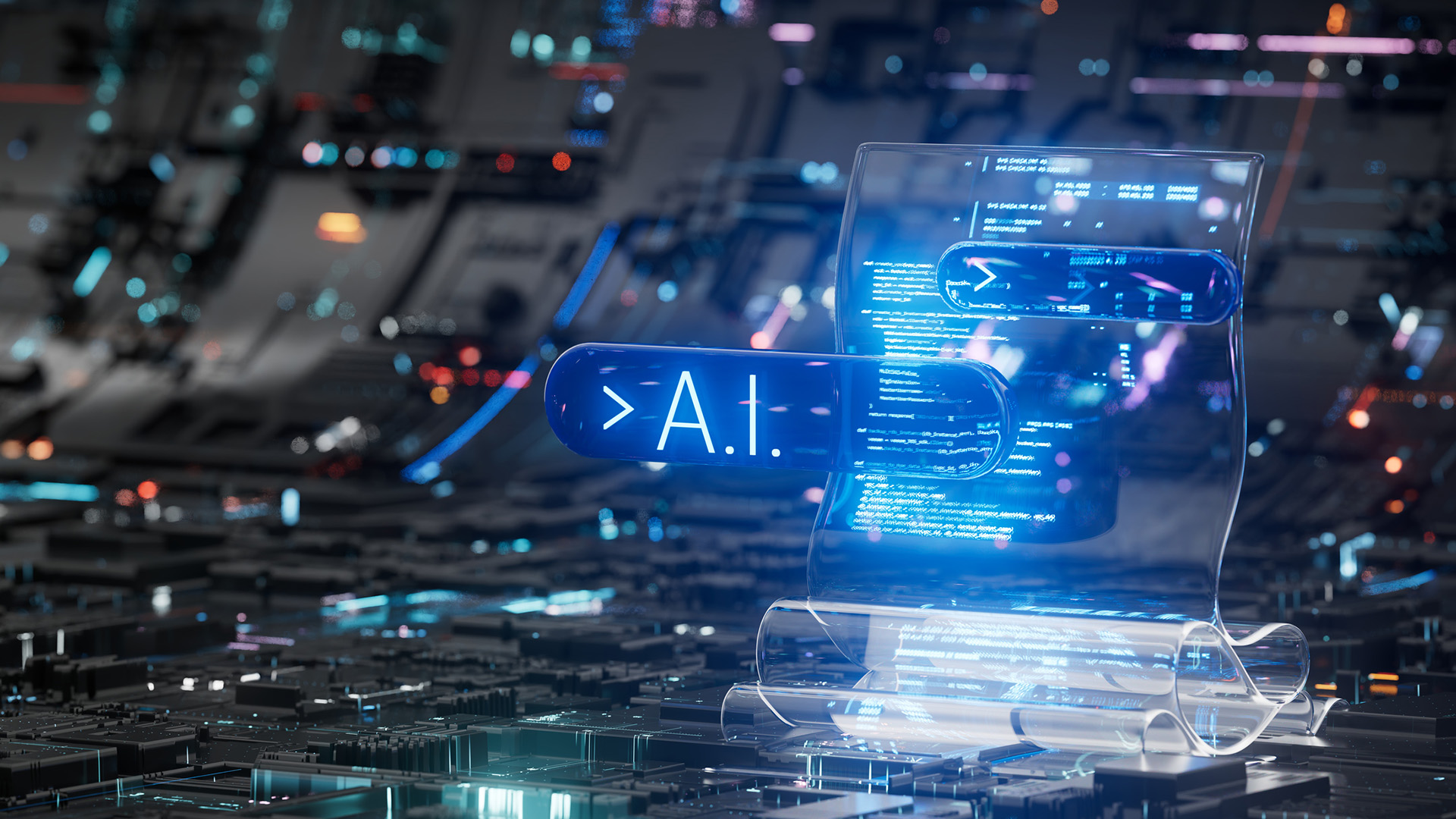AI-first partnerships: Unlocking scalable growth for business
Channel partners play a vital role in facilitating AI adoption, but there's more to offering support than simple integration


Stay up to date with the latest Channel industry news and analysis with our twice-weekly newsletter
You are now subscribed
Your newsletter sign-up was successful
AI is no longer just a technological upgrade or add-on — it is fundamentally reshaping business capacity and the future of work. As organizations embrace AI to drive efficiencies and innovation, their needs are evolving rapidly.
This presents both a challenge and an opportunity for channel partners, who sit at the heart of this transformation. To remain competitive, partners must go beyond offering AI-powered solutions and position themselves as strategic enablers.
Businesses are increasingly looking to partners to help them navigate the complexities of AI integration, requiring tailored strategies that align with their unique operational needs.
This shift means that channel partners must reposition their role, not just as vendors, but as long-term AI adoption advisors, ensuring that organizations extract the maximum value from their investments.
AI productivity gains depend on integration, not just adoption
A strategic approach to AI integration ensures that businesses see the full benefits of automation, from reducing manual workloads to improving decision-making accuracy.
Channel partners serve as key enablers by embedding AI into core business processes, working within existing systems. Rather than just providing AI tools, partners must help businesses transform workflows with AI-powered automation, predictive analytics, and intelligent decision-making.
This hands-on approach ensures that businesses maximize efficiency and improve their ability to react to market dynamics in real time.
Stay up to date with the latest Channel industry news and analysis with our twice-weekly newsletter
At the same time, channel partners must also embrace AI internally to strengthen their own service models. By leveraging AI-driven automation for partner management, refining sales forecasting with predictive analytics, and enhancing customer service with AI-powered insights, partners can streamline their operations and enhance the value they provide.
Demonstrating successful AI adoption within their own organizations further reinforces their credibility, making them trusted allies in the transformation process.
AI innovation must be measured against practical business metrics
Many businesses invest in AI without a clear framework for evaluating its ROI, leading to inefficiencies and missed opportunities. Channel partners play a vital role in advising AI success metrics, ensuring customers can quantify the value AI brings to their operations.
This means not only identifying key performance indicators, but also establishing benchmarks for AI effectiveness in streamlining processes, reducing costs, and driving innovation.
IT leaders must define clear metrics to measure AI’s business impact, and channel partners serve as trusted advisors in this process. Rather than focusing solely on AI deployment, businesses need structured KPIs that evaluate its role in streamlining processes and fostering innovation.
Channel partners help establish these benchmarks, providing expert guidance on tracking AI-driven improvements and aligning adoption with tangible business outcomes.
By ensuring AI investments translate into measurable success, partners empower organizations to drive sustained growth and efficiency.
The real advantage lies in speed, not scale
Businesses often prioritize increasing AI capacity, but the real differentiator is how quickly AI can drive actionable insights. Helping customers integrate AI in a way that enables real-time decision-making is crucial, enabling them to quickly act on insights and stay agile in dynamic markets.
Whether through real-time analytics for supply chains or AI-driven customer service responses, the focus must be on reducing latency between data collection and action. Businesses that can optimize AI for immediate responsiveness will gain a decisive edge in competitive markets.
To maintain leadership in the channel space, partners must also leverage AI to improve their own agility. By incorporating AI-powered automation into internal operations, partners can enable faster, data-driven business decisions.
This shift ensures they are not only selling AI but also demonstrating its speed-driven benefits within their own operations, reinforcing their ability to deliver AI-led transformations for customers.
Driving partner enablement and business growth
To fully support businesses in their AI transformation, channel partners must continuously refine their expertise. This includes investing in AI training, upskilling teams, and keeping pace with evolving AI capabilities. Partners that lead by example — leveraging AI-driven insights for client strategies — will build greater credibility and trust in the market.
AI training and enablement programs for partner teams, such as the HP Amplify AI programme, will become an essential differentiator. As AI evolves, partners who continuously invest in knowledge-building will provide better guidance, ensuring their customers’ AI investments deliver real-world value.
Success in the AI-driven market requires more than selling technology, though. It demands delivering real transformation for the future of work. Channel partners who embed AI into services, streamline implementation, and align solutions with measurable business impact will lead the way.
As AI continues to reshape industries, those who embrace its full potential will drive innovation, unlock new opportunities, and secure long-term growth.
MORE VIEWS FROM THE CHANNEL

Neil Sawyer is the Managing Director of HP North West Europe, overseeing HP’s operations in the region. In his role, he leads a diverse team focused on addressing the comprehensive technology, solutions, and services needs across public sector, large enterprise, small to medium businesses, consumer and home users.
-
 Agile methodology might be turning 25, but it’s withstood the test of time
Agile methodology might be turning 25, but it’s withstood the test of timeNews While Agile development practices are 25 years old, the longevity of the approach is testament to its impact – and it's once again in the spotlight in the age of generative AI.
-
 Will a generative engine optimization manager be your next big hire?
Will a generative engine optimization manager be your next big hire?In-depth Generative AI is transforming online search and companies are recruiting to improve how they appear in chatbot answers
-
 Why Anthropic sent software stocks into freefall
Why Anthropic sent software stocks into freefallNews Anthropic's sector-specific plugins for Claude Cowork have investors worried about disruption to software and services companies
-
 B2B Tech Future Focus - 2026
B2B Tech Future Focus - 2026Whitepaper Advice, insight, and trends for modern B2B IT leaders
-
 What the UK's new Centre for AI Measurement means for the future of the industry
What the UK's new Centre for AI Measurement means for the future of the industryNews The project, led by the National Physical Laboratory, aims to accelerate the development of secure, transparent, and trustworthy AI technologies
-
 Half of agentic AI projects are still stuck at the pilot stage – but that’s not stopping enterprises from ramping up investment
Half of agentic AI projects are still stuck at the pilot stage – but that’s not stopping enterprises from ramping up investmentNews Organizations are stymied by issues with security, privacy, and compliance, as well as the technical challenges of managing agents at scale
-
 What Anthropic's constitution changes mean for the future of Claude
What Anthropic's constitution changes mean for the future of ClaudeNews The developer debates AI consciousness while trying to make Claude chatbot behave better
-
 Satya Nadella says a 'telltale sign' of an AI bubble is if it only benefits tech companies – but the technology is now having a huge impact in a range of industries
Satya Nadella says a 'telltale sign' of an AI bubble is if it only benefits tech companies – but the technology is now having a huge impact in a range of industriesNews Microsoft CEO Satya Nadella appears confident that the AI market isn’t in the midst of a bubble, but warned widespread adoption outside of the technology industry will be key to calming concerns.
-
 Workers are wasting half a day each week fixing AI ‘workslop’
Workers are wasting half a day each week fixing AI ‘workslop’News Better staff training and understanding of the technology is needed to cut down on AI workslop
-
 Empowering customers in the AI era: The new role for partners
Empowering customers in the AI era: The new role for partnersIndustry Insights As businesses embrace agentic AI, partners play a critical role in helping customers adopt and secure it with confidence